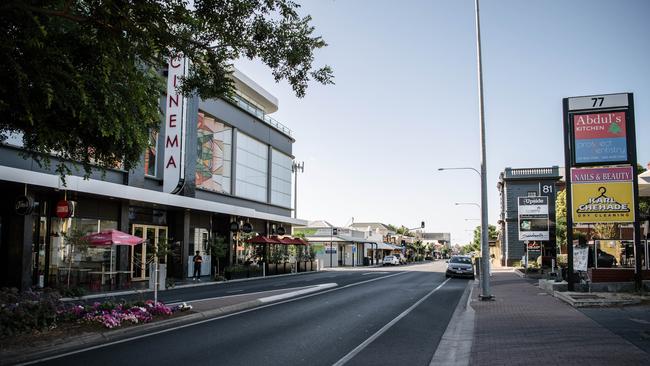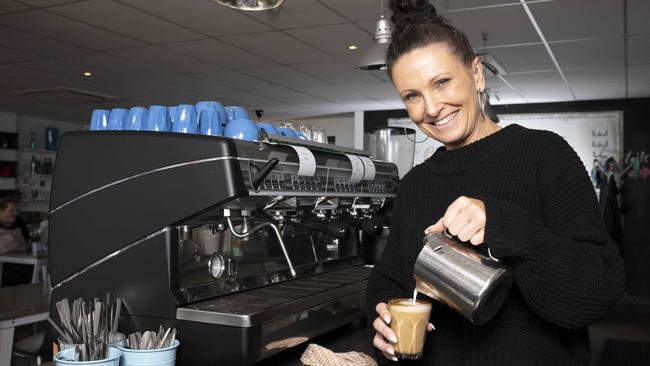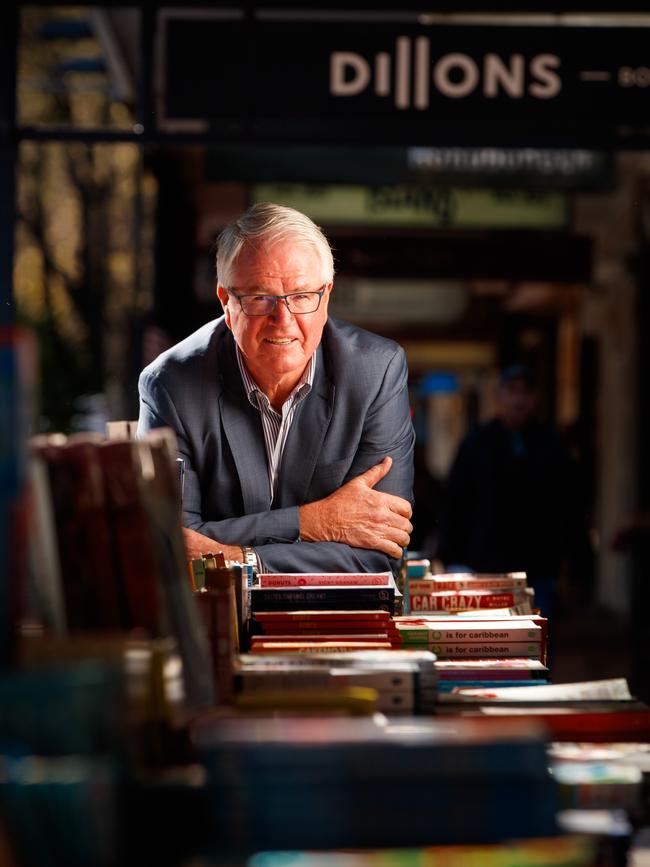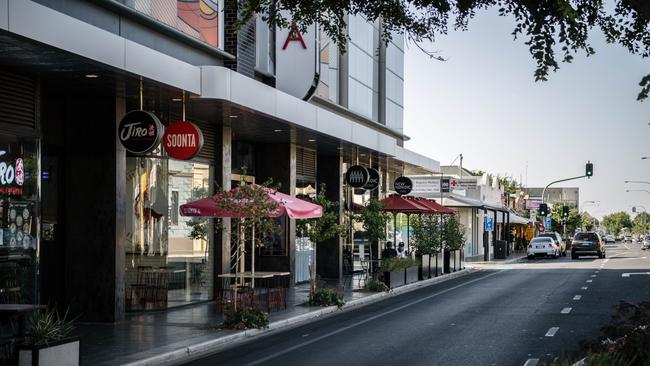COVID-19 expected to bring shoppers back to local Adelaide streets
COVID has caused the downfall of many retail outlets and cost thousands of jobs – but now it’s sparking a renaissance of the high street as people stay close to home.
SA Business
Don't miss out on the headlines from SA Business. Followed categories will be added to My News.
- Glenelg traders report increase during pandemic
- How to get the most out of your Advertiser subscription
A renaissance of the traditional high street is lifting the spirits of local traders, according to business groups, who expect COVID-19 to inspire a new wave of retail entrepreneurialism.
They say South Australians are spending more time and money in their local communities because of restrictions on travel and the rise in the number of people working from home.
Mainstreet SA chair Vivienne Holloway said high-street retailers were benefiting as health concerns eased, with shoppers eager to head back out after months of isolation.
“With so many people working from home and staying closer to home, they have reconnected with their local main street and their local community and that is something that is here to stay – these are things that are going to stick,” she said.
“People are desperate to get out and about in their local communities and main streets, and for a long time they’ve been moving away from the big-box shopping centres and are looking for a more unique, artisan and authentic experience.”

Ms Holloway expects the pandemic to drive a new wave of innovation along metropolitan and regional main streets, with local retailers leading the charge.
“Main streets bring social benefits and cultural benefits and that will always be the same, but the interesting thing about the pandemic is that it is main street businesses more than any others that have innovated because they know their customers better,” she said.
“All disruption lends itself to innovation and creativity – it’s natural selection – and after big disruption you tend to get more artisans and creatives moving into main streets because people are looking for a unique experience.
“For property owners it’s about thinking outside the square and seeing how they can breathe life into spaces and also the street.”
Business SA chief executive Martin Haese launched the Youthworks fashion chain at the height of the recession in the early 1990s.
He hopes COVID-19 inspires a new generation of local entrepreneurs.

“Recessions and pandemics are fairly disruptive to business as usual and there’s always opportunities during disruption,” he said.
“To launch a small business in a market you know well, and to launch it during a recession, is not an entirely irrational thing to do.
“In times of disruption consumers are looking for something new and they change their behaviours and that’s what we’re seeing in 2020.”
Mr Haese said it was up to individual business owners to capitalise on the current spike in retail spending.
“I would say most notably in June and July we have seen an uptick in the level of retail spending and a resurgence in buying local, and what I mean by that is geographically close to your home, in regional towns and on metropolitan main streets,” he said.
“That’s going to last for this calendar year and next calendar year and it’s then up to enterprising business owners to do everything they can to ensure it becomes sustainable – to try to build a large and loyal customer base.
“Consumers to some degree are creatures of habit, so if we are forming new habits of buying local and consumers are enjoying that reconnection with the local butcher or the local restaurateur, then we might find that it is quite sustainable.”
Mr Haese said local councils and property owners also had a role to play in upgrading infrastructure and facilities to cater to renewed demand.
“Investment in the public realm, in public amenity, the beautification of the streetscape is very important,” he said.
“Let’s look at Prospect Road, King William Road Hyde Park, Norwood Parade, Rundle Mall – the commonality of all those streets is that they’ve all gone through a fairly intensive public investment back into public amenity and beautification – we think that’s important.
“Then for local businesses and landlords it’s really about the strategic curation of the tenant mix. Interesting, innovative tenants who are different could not be more important – Prospect Road is a good example of this – it attracts people like a magnet.”
Christies Beach
For businesses along Beach Road at Christies Beach, the coronavirus pandemic has been a way to expose their shop fronts to browsing shoppers looking for something to do.
Luke Simmons, owner of The Beatbox record store, said his business had doubled since they reopened after strict restrictions were relaxed in April.
“When we were closed for two weeks we were getting phone calls every day asking whether we were open,” Mr Simmons said.
He said more people being at home has encouraged them to look into maintenance around the house, such as fixing their record players, and buying new records to play.
“The exposure for us has been massive, every day we have had people saying, ‘When did you open?’”
Flava Food and Cafe, on the Christies Beach Esplanade, never closed in the pandemic but found their business has flourished since restrictions were eased for dine-in customers.
Eatery owner Paul Player said business has picked up in recent months.
“Being on the beach front … we’ve had a fair few people down walking on the beach,” Mr Player said.

He said trade has been better than last winter.
“People wanted to get out, whether they were sick of being cooped up at home, or sick of working from home (in the pandemic).”
Reyes Beard, chairwoman from Christies Beach Business and Tourism Association, said the start of the pandemic saw businesses struggle, with some closing.
“However on the flip side of that … you absolutely saw the light as well, with locals really coming out to make sure they really were supporting their local communities and shopping local,” Ms Beard said.
The association is made up of a handful of volunteers who are local residents, business owners, and people with invested interest in the area
“It has been absolutely beautiful to see the local community rallying around each other,” she said.
The Parade
After 35 years of trading, Dillons Bookshop at Norwood owner, Ross Dillon, never expected a pandemic would improve his trade.
Mr Dillon said sales for the year have increased by 25 per cent during the coronavirus crisis, because more people are reading.
“For us I think there’s more reading being done,” Mr Dillon said.
“Business has never been stronger for us.”
He said the store had no trouble getting new books from interstate suppliers.
“I don’t want the COVID to continue, but I want the trading to continue.”
Residing member from the Norwood, Parade Precinct Committee, and Norwood Mayor Robert Bria said he has received largely positive feedback from traders along the busy Parade strip since restrictions eased.

“People aren’t travelling so they’re spending money on other, luxury things,” Mr Bria said.
He said some businesses are doing better than others.
“They have certainly appreciated the loyalty customers are showing not just to their business, but the precinct.”
Mr Bria said the committee was working on different initiatives to ensure people shop local and visit The Parade into spring.
King William Road
Another city-fringe strip, King William Road, has battled with delayed roadworks over recent months that saw many shops close and a decline in revenue and foot traffic along the strip.
However, traders are saying the COVID-19 pandemic has brought a “buzz” to the road.
Emily Hardy, manager from Denim Iniquity, said the shop has seen a stronger winter than last year.
“There’s definitely a buzz on the street, especially with people not working so much, they’ve got more time on their hands,” Ms Hardy said.
She said in the absence of travel, people are “treating themselves” to purchasing goods they might have otherwise bought while on holiday.
King William Road’s marketing manager, Natalie Buckingham said there has been an increase in visitation and shoppers are spending longer on the precinct.
“King William Road traders have had a challenging 12 months with the health pandemic hitting shortly after the main street upgrade,” Ms Buckingham said.
“It’s great to see consumers back in the precinct supporting the local business community.”
Prospect Rd
The impacts of COVID-19 on Prospect Road businesses have been mixed, with some shops booming and others crashing, City of Prospect mayor David O’Loughlin says.
Most stores serving food and meals on the popular shopping strip have been showing positive signs as restrictions from the coronavirus pandemic eases.
But, for some businesses, it has “proved fatal”, Mr O’Loughlin said.
“Maybe that is because they weren’t so strong going into the crisis and haven’t been able to recover,” he said.
“It has been mixed, but generally the Prospect Village heart has been trading very well.”
Mr O’Loughlin also said trading at the Northpark Shopping Centre, situated on Main North Road, has stayed healthy.

“More broadly, businesses are recovering at a pace, which I think is comforting, notwithstanding we have lost some loved businesses and that is very sad.”
The mayor estimates fewer than five Prospect businesses have closed as a result of the pandemic, but there had been strong interest in their now-vacant spaces.
“We have had some new (businesses) open … so the outlook is positive.”
Mr O’Loughlin said it was disappointing that Prospect businesses miss out on State Government grants paid to small businesses in the city impacted by COVID-19.
“It’s a bit of a kick in the guts that O'Connell Street businesses (in North Adelaide), which our cafes and restaurants compete with head-to-head are getting $10,000 each and our local businesses are getting nothing”.
Meanwhile, nearly a dozen stores in the Salisbury area have closed permanently due to COVID-19.
The Salisbury Business Association praised the resilience of local traders amid the pandemic, but was fearful of “very tough times”without a pre-Christmas surge in spending.
Association executive officer David Waylen said the Salisbury city centre’s 350 small to medium businesses were “still trying to get back on their feet” after a “horrendous” March to June period.
He said 10 businesses closed their doors permanently since the pandemic struck, including Flight Centre Salisbury, PN Bakery and Gametraders.
Gorgeous Eyebrows, Massive Joes Parabanks, Relaxation Massage, Taha Flight Centre and Heroes Haven were among the other stores to shut.
“Many of these businesses have to make up lost revenue from March to July, which means they truly need to be at like 130 per cent capacity – a big ask for any business,” Mr Waylen said.
– with Ben Cameron
